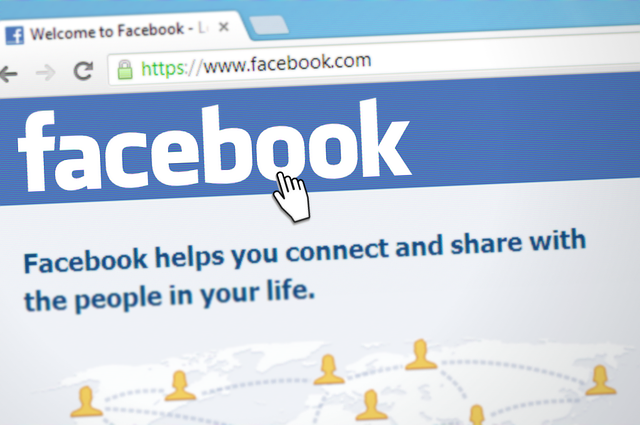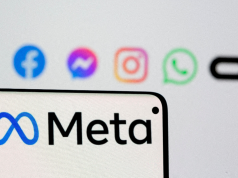Several theories were shared following a surge of “ghost” Facebook accounts amid the calls to junk the anti-terrorism bill.
On June 7, the country’s top universities Ateneo de Manila University, University of the Philippines, De La Salle University and the University of Santo Tomas have issued statements on June 7 about the creation of fake or dummy Facebook accounts of the members of their respective communities and urged them to stay vigilant in their interactions with them.
A dummy account normally has a blank display picture, bears the username or a variation of the username of the original Facebook user, and a numbered profile link.
TERRORIZING THE NON-TERRORISTS. Following the passage on third reading of the Anti-Terror Bill, activists and progressives are now being digitally attacked with dummy duplicate accounts.
We will not be silenced.#JunkTerrorBill #ActivismIsNotTerrorism #HandsOffOurStudents pic.twitter.com/77K1NNt5pm
— Frank (@frankiesteinart) June 7, 2020
When these complaints reached the Department of Justice’s Cybercrime Office, they assured the public that they are already investigating these cases.
DOJ spokesperson Markk Perete added that they have received 100 complaints already.
Facebook also said that they have conducted a probe on this “suspicious activity” from the Philippines and encouraged the public to continue reporting these alleged fake profiles.
Privacy Commissioner Raymund Liboro, meanwhile, admitted that this was the first time the National Privacy Commission received reports of impostor accounts of this grand scale from educational institutions such as UP and DLSU. They used to only receive one by one of such cases.
This development came after a series of protests were staged in different parts of the country last week against the passage of the Anti-Terrorism Act of 2020, which activists and lawyers deemed to be unconstitutional.
Last June 5, eight protesters were arrested without a warrant inside the University of the Philippines-Cebu over alleged quarantine violations. As of writing, they are still detained, and other activists sought help online to raise funds for their bail.
Despite the timing, according to an official from the National Bureau of Investigation, what happened may just be a “glitch” in Facebook’s system.
“Ang tinitingnan pa lang namin ngayon, in all probability, glitch lang ito dahil napakahirap mag-create ng account ngayon sa Facebook, especially kapag madami kang kini-create na account under one ID, one cellphone number, one location,” NBI Cybercrime Division Chief Victor Lorenzo said in ABS-CBN’s TeleRadyo on June 8.
Theories why it happened
The emergence of inauthentic accounts on the social media network is not new. Facebook itself had conducted crackdowns against these dubious accounts and pages that its monitoring system found to have been involved in disinformation on the platform in the past.
This time, however, it mostly involves students or alumni of the top four universities, and other social media personalities who openly expressed their dissent against the proposed anti-terror bill.
Tug-ani, UP-Cebu’s official student publication, first alerted the students of such concern on June 6, which was a day after the eight students or so-called Cebu 8 on social media were arrested inside the campus premises.
ALERT: Dozens of empty duplicate accounts bearing active usernames of UP Cebu students surface tonight. Victims…
Posted by Tug-ani on Saturday, June 6, 2020
Some Filipinos decried having more than 60 empty accounts using their names, whereas others have at least three.
The hashtags #junkterrorbill and #handsoffourstudents trended on Twitter as Filipinos denounced the creation of these pages on the micro-blogging platform.
- Instill terror or fear to critics of the anti-terror bill
Human Rights Watch researcher Carlos Conde perceived that the dubious profiles emerged to instill terror young Filipinos who voiced out their opposition against the bill.
“These fake FB accounts are designed to terrorize young Filipinos who have found the courage to speak out on social media about such issues as #junkterrorbill,” Conde said.
The UP Office of the Student Regent also previously warned students that these accounts could be used to cause harm or spread false information about them online.
“We are hoping that this is a glitch in the system only and can be resolved as soon as possible. However, let it be clear that we will not tolerate any misleading content posted on any account that will endanger our students. Thank you,” its statement said.
The Communicator, a student publication of the Polytechnic University of the Philippines, warned its followers that a female PUP student received a threat from one of the accounts bearing her username.
ALERT: A student from the PUP – College of Communication receives a message from one of the accounts with the same name…
Posted by The Communicator on Sunday, June 7, 2020
Another Facebook user shared a screenshot of his copycat account with added details of him alleging to be a member of the New People’s Army.
Ang lala neto hahaha
Posted by Diego Lee on Saturday, June 6, 2020
- Allowed or enabled by Facebook
Dominic Ligot, a board member of the Philippine Center for Investigative Journalism, observed that Facebook enabled this “phenomenon” to happen.
“While you adjust to this yet-another-new-normal thing, ask yourselves: why so surprised? FB enables this by nature. FB defenders are starting to sound like gun rights advocates: yes it’s dangerous but it helps me do this,” Ligot said on Twitter.
“Two cases of weaponized FB in as many months: mass-report a controversial blog for fake news in one month, then pendulum swings back and doppleganger accts appear,” he added.
Ligot did not mention the name of the controversial blog. However, last March, Facebook page Mocha Uson blog was taken down following a massive initiative of reporting it.
Last week, shortly after Congress passed the anti-terrorism measure on third and final reading, some users noticed that their Facebook posts against the bill were suddenly taken down.
Facebook cited an “error” with their system that monitors abusive websites which caused the deletion.
They have also since restored these postings, which were accidentally deleted.










